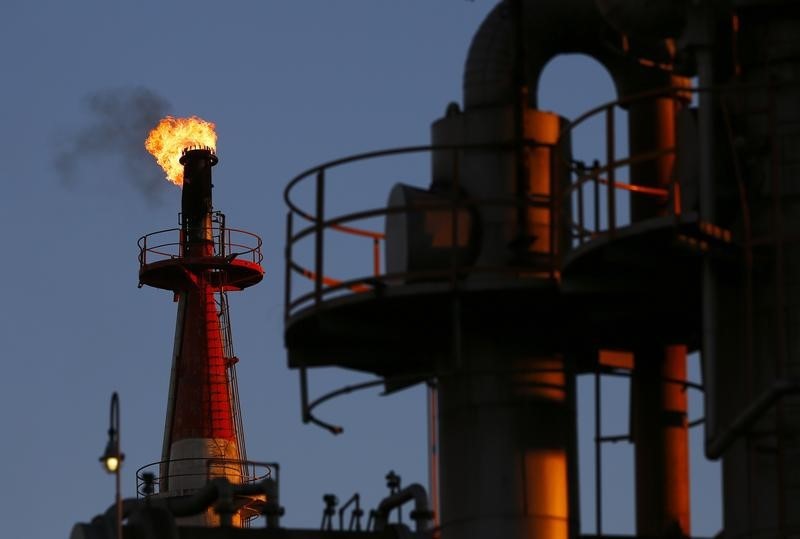Five things to watch in markets in the week ahead
Investing.com--Oil prices fell Thursday, handing back some of the previous session’s sharp gains after rising tensions in the Middle East stoked fears of supply disruptions.
At 06:10 ET (10:10 GMT), Brent Oil Futures slipped 1.4% to $68.78 per barrel, and West Texas Intermediate (WTI) crude futures also fell 1.5% to $67.15 per barrel.
Both contracts surged over 4% on Wednesday during a turbulent trading session.
Oil jumped as U.S,-Iran tensions flare
Wednesday’s spike reflects heightened geopolitical risk following Washington’s move to allow dependents to leave Bahrain and Kuwait amid fears of retaliation.
President Donald Trump said he was now “less confident” in striking a nuclear deal with Iran, further eroding hopes of a diplomatic resolution.
The White House has warned it would consider military measures should negotiations fail, with a key response deadline looming this Thursday.
Meanwhile, Iran’s defence minister threatened that Tehran would target U.S. bases regionally if attacked.
These developments added a geopolitical risk premium to crude, as investors feared any conflict could disrupt shipping routes or oil infrastructure across the Gulf.
"For the oil market, the absolute nightmare is a closure of the Strait of Hormuz," Global Risk Management analyst Arne Rasmussen said in a LinkedIn post.
"If Iran blocks this narrow chokepoint, it could affect up to 20% of global oil flows," he added.
U.S.-China trade truce
Oil had also been supported by the progress in U.S.-China trade talks, with investors closely watching details on the proposed framework deal.
The accord grants China export licenses for rare earth minerals and magnets, while the U.S. will allow continued access for Chinese students. Washington will maintain a total tariff rate of approximately 55% on Chinese imports, with China retaining a 10% tariff on American goods, Trump said in a social media post.
Trump added he will send letters in the coming weeks to key trading partners, outlining "take it or leave it" tariff offers ahead of a July 9 deadline tied to his pause on sweeping “liberation day” tariffs.
He said he is open to extending that deadline, but expects it won’t be necessary.
These developments reduced some uncertainty in global trade and improved the outlook for economic growth, which typically drives higher energy demand.
Barclays (LON:BARC) turns "less cautious" on crude
A "less cautious" stance on crude prices in the near term is "warranted" due to solid fundamentals and elevated geopolitical tensions, although the case for a "constructive" medium-term view is getting stronger, according to analysts at Barclays.
Writing in a note to clients on Thursday, the analysts led by Amarpreet Singh said that recent data has "continue[d] to surprise to the upside," adding that global crude oil stocks have increased marginally in the current quarter and demand in China -- the world’s biggest oil importer -- "remains relatively robust."
Output by the OPEC+ producer group have also fallen short of increased targets, while exports from countries that oversee much of the world’s spare oil capacity have been "fairly steady," the strategists added.
Meanwhile, oil-directed drilling activity in the U.S. has eased, they noted, flagging that the Energy Information Agency now sees output sliding to flat this year and declining by 100,000 barrels per day fourth quarter-to-fourth quarter.
Ayushman Ojha contributed to this article
